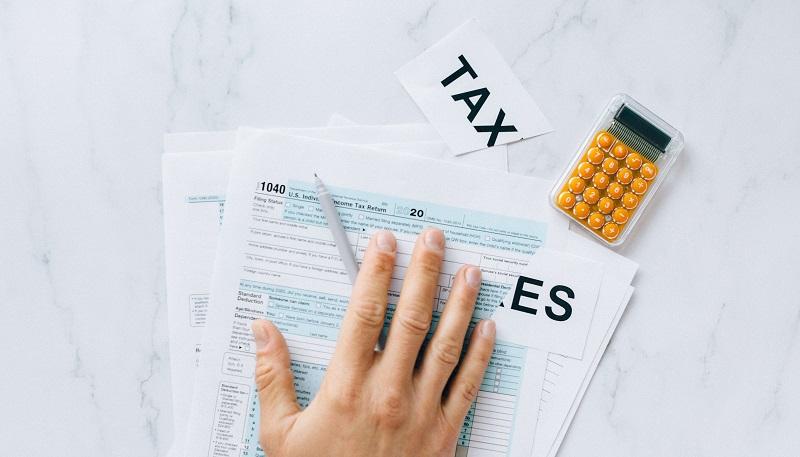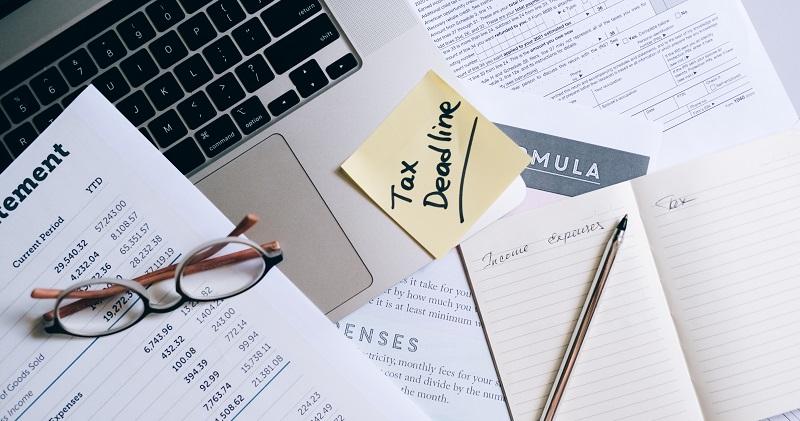Smart Tax Moves: Claiming Deductions Even Without Receipt Evidence
Aug 12, 2023 By Kelly Walker
It's a given that business-related expenses substantiated by receipts are tax-deductible. Yet, are you aware that there exists a category of tax deductions for small businesses that don't require any receipts? Rather than rifling through cluttered drawers and folders for elusive documentation, you can tap into these unreceipted tax deductions, which we're about to discuss.
Self-Employment Taxes
Being self-employed means you're tasked with handling your Social Security and Medicare taxes, known as self-employment taxes. You can deduct half of these taxes from your income, consequently reducing your federal income tax. If you employ tax software for your return, it will autonomously compute the deductible amount.
Home Office Expenses

For home-based business owners, a percentage of your rent or mortgage, utilities, insurance, and other home-related expenses qualify for the home office deduction. The stipulation is that this area must be exclusively for business. Receipts aren't necessary for most home office expenses; however, alternative documentation should be accessible:
Rent: Verified via canceled checks, bank statements, or a copy of your rental agreement.
Mortgage Interest: Your Form 1098 from your lender provides this data, or it can be viewed online.
Real Estate Taxes: Located on Form 1098, an annual statement from the county assessor’s office, or the assessor's website.
Utilities: Available through copies of your utility bills or online payment history.
Self-Employed Health Insurance Premiums
For self-employed individuals with health insurance, the premium costs are deductible from taxes, even without itemized deductions on Schedule A. If receipts aren't available, use a copy of your policy's declarations page or your payment history from the insurance company's website.
Self-Employed Retirement Plan Contributions
Contributions to a qualifying retirement plan such as a traditional IRA, SEP-IRA, or solo 401(k) not only secure your future but also cut down your present tax bill. The deductible amount depends on the retirement plan type. Your account manager should record all contributions made on Form 5498 or in your year-end statement.
Vehicle Expenses
If your private vehicle is used for business, you can deduct the cost of gas, repairs, and depreciation. Alternatively, use the standard mileage rate, which is a preset amount per mile deductible for business use of your vehicle. This rate was 58.5 cents per mile from January to June and 62.5 cents per mile from July to December in 2022. Only miles driven for business purposes and recorded during the tax year are deductible.
Cell Phone Expenses

As a business owner, if a cell phone is used for business, a portion of the service plan cost is deductible. To compute this, multiply your monthly service plan cost by the percentage used for business, which typically ranges from 30% to 50%.
The tax write-off rules fluctuate depending on the business type or entity. For instance, self-employed taxpayers can deduct their health insurance premiums. On the other hand, S corporations deduct these premiums on the business tax return, while owners of other pass-through businesses deduct them on Schedule 1, filed with Form 1040.
S corporation owners can't claim the home office deduction. If a home office is used for business, the company can pay you rent for it, but this is taxable income on your personal tax return. Alternatively, an "accountable" plan can be established to reimburse the home office costs, requiring a written plan, monthly expense reports, and receipts for reimbursable expenses. It is prudent to consult with a CPA before initiating an accountable plan for your S corporation.
Tax Credit VS Tax Deductions
While bank and credit card statements offer some documentation for tax credits and deductions, they usually do not suffice on their own. They lack details that the IRS requires such as payee, amount paid, date incurred, and a description showing the purchase was business-related. For instance, your bank statement might show a $135 expenditure at Costco on December 1, but the IRS can't determine if this was for office supplies or home groceries.
In the absence of receipts, amass alternative documentation to substantiate your tax deductions, such as canceled checks, credit card statements, invoices, bills, account statements, purchase and sales invoices, contracts, transaction histories, duplicate records from vendors and suppliers, and calendars showing travel expenses, client meetings, and business meals.
Frequently Asked Questions
1. What are some common tax deductions that don't require receipts?
There are several tax deductions that you can claim without needing a physical receipt. These include self-employment taxes, home office expenses, self-employed health insurance premiums, retirement plan contributions, vehicle expenses, and cell phone expenses. However, even in the absence of receipts, alternative documentation like bank statements, credit card statements, and online transaction histories can be used to support these deductions.
2. Are bank statements sufficient to replace lost or unavailable receipts for tax deductions?
While bank and credit card statements can provide some documentation for tax deductions, they're generally not sufficient on their own. These statements usually lack crucial details that the IRS requires, such as the payee, amount paid, date of the transaction, and a clear description indicating that the purchase was business-related.








